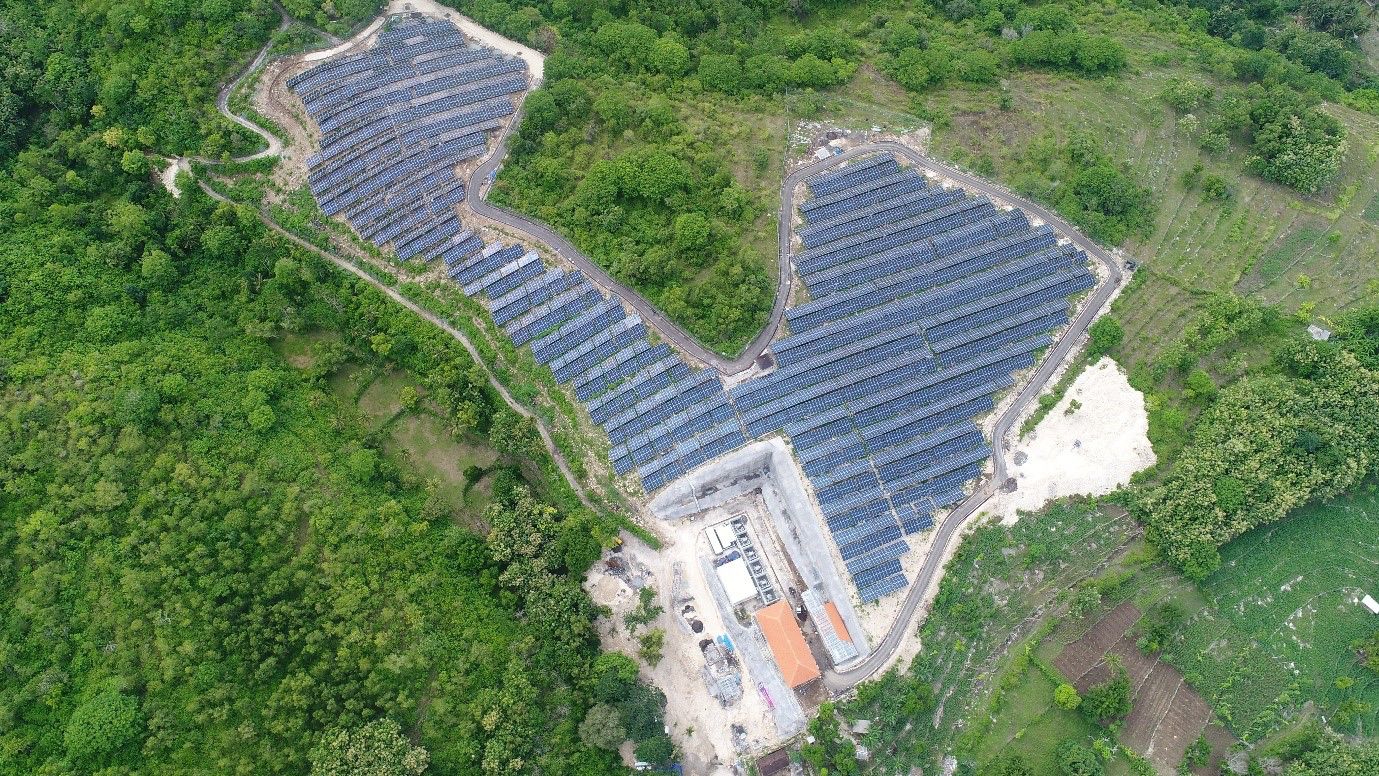Building Clean Energy Sufficiency in Nusa Penida
The beautiful Nusa Penida islets, part of Bali’s Klungkung District, are known for their rocky cliffs, dry climate, and incredible views. These three islands—Nusa Penida, Nusa Lembongan, and Nusa Ceningan—draw thousands of tourists daily for their iconic natural beauty and serene atmosphere, far from Bali’s busy mainland. However, with such growing tourist numbers, the islands' need for sustainable, reliable energy sources has also surged.
Recognizing Nusa Penida’s high solar potential due to its sunny climate, PT PLN Indonesia Power has developed a solar power plant in Suana Village to supply clean energy for residents and tourism activities alike. The solar plant, which spans 4.5 hectares, is equipped with hundreds of solar panels and advanced battery energy storage systems (BESS), allowing it to store solar energy for use at all hours. Built with a domestic content level of 48 percent, the facility began operations in November 2022 and can produce up to 3.5 megawatts (MW) of environmentally friendly electricity with an additional 1.84 MW stored in its BESS.
This solar energy facility has reduced the islands' dependency on diesel generators, providing a cleaner and more stable electricity supply. The new renewable energy infrastructure aligns with Indonesia’s national goal of achieving net-zero carbon emissions by 2060, with the Nusa Penida solar plant alone cutting emissions by around 4,190 tons of CO2 annually.
For local businesses like villas and hotels that rely heavily on electricity, this shift to solar energy has made a big difference. Wayan Sukadana, a local hotel operator and member of the Klungkung Indonesian Hotel and Restaurant Association (PHRI), noted that electricity has become more stable, benefiting residents, business owners, and the environment. With the consistent energy supply, sustainable tourism is easier to achieve, with less dependence on fossil fuels and a smaller carbon footprint.
Looking ahead, PT PLN Indonesia Power has plans to expand the solar power plant’s capacity to 10 MW, with additional renewable energy generators under consideration. This expansion will enable Nusa Penida to become increasingly energy self-sufficient and support its sustainable tourism industry. The hope is that this clean energy infrastructure will continue to advance in alignment with the island’s natural resources and the commitment of local tourism businesses, contributing to a greener future for Nusa Penida.
Read More






 Wednesday, 25-02-26
Wednesday, 25-02-26







